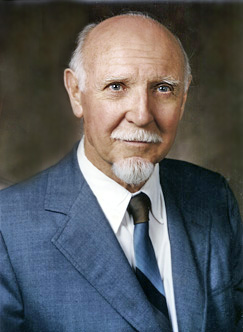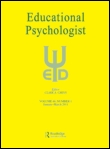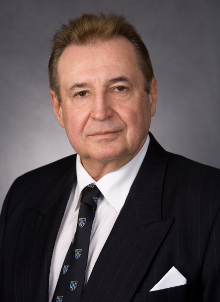
Learning theory describes how students receive, process, and retain knowledge during learning. Cognitive, emotional, and environmental influences, as well as prior experience, all play a part in how understanding, or a worldview, is acquired or changed and knowledge and skills retained.

Research is "creative and systematic work undertaken to increase the stock of knowledge". It involves the collection, organization, and analysis of evidence to increase understanding of a topic, characterized by a particular attentiveness to controlling sources of bias and error. These activities are characterized by accounting and controlling for biases. A research project may be an expansion of past work in the field. To test the validity of instruments, procedures, or experiments, research may replicate elements of prior projects or the project as a whole.
Social constructivism is a sociological theory of knowledge according to which human development is socially situated, and knowledge is constructed through interaction with others. Like social constructionism, social constructivism states that people work together to actively construct artifacts. But while social constructivism focuses on cognition, social constructionism focuses on collective meaning-making.
Critical thinking is the analysis of available facts, evidence, observations, and arguments in order to form a judgement by the application of rational, skeptical, and unbiased analyses and evaluation. The application of critical thinking includes self-directed, self-disciplined, self-monitored, and self-corrective habits of the mind, thus a critical thinker is a person who practices the skills of critical thinking or has been trained and educated in its disciplines. Philosopher Richard W. Paul said that the mind of a critical thinker engages the person's intellectual abilities and personality traits. Critical thinking presupposes assent to rigorous standards of excellence and mindful command of their use in effective communication and problem solving, and a commitment to overcome egocentrism and sociocentrism.

Constructivism is a view in the philosophy of science that maintains that scientific knowledge is constructed by the scientific community, which seeks to measure and construct models of the natural world. According to constructivists, natural science consists of mental constructs that aim to explain sensory experiences and measurements, and that there is no single valid methodology in science but rather a diversity of useful methods. They also hold that the world is independent of human minds, but knowledge of the world is always a human and social construction. Constructivism opposes the philosophy of objectivism, embracing the belief that human beings can come to know the truth about the natural world not mediated by scientific approximations with different degrees of validity and accuracy.
Educational research refers to the systematic collection and analysis of data related to the field of education. Research may involve a variety of methods and various aspects of education including student learning, interaction, teaching methods, teacher training, and classroom dynamics.
Together, legal psychology and forensic psychology form the field more generally recognized as "psychology and law". Following earlier efforts by psychologists to address legal issues, psychology and law became a field of study in the 1960s as part of an effort to enhance justice, though that originating concern has lessened over time. The multidisciplinary American Psychological Association's Division 41, the American Psychology–Law Society, is active with the goal of promoting the contributions of psychology to the understanding of law and legal systems through research, as well as providing education to psychologists in legal issues and providing education to legal personnel on psychological issues. Further, its mandate is to inform the psychological and legal communities and the public at large of current research, educational, and service in the area of psychology and law. There are similar societies in Britain and Europe.
Theoretical psychology is concerned with theoretical and philosophical aspects of psychology. It is an interdisciplinary field with a wide scope of study.
Learning sciences (LS) is an interdisciplinary field that works to further scientific, humanistic, and critical theoretical understanding of learning as well as to engage in the design and implementation of learning innovations, and the improvement of instructional methodologies. LS research traditionally focuses on cognitive-psychological, social-psychological, cultural-psychological and critical theoretical foundations of human learning, as well as practical design of learning environments. Major contributing fields include cognitive science, computer science, educational psychology, anthropology, and applied linguistics. Over the past decade, researchers have expanded their focus to include the design of curricula, informal learning environments, instructional methods, and policy innovations.
Asian psychology is a branch of cultural psychology that studies psychological concepts as they relate to Asian culture. Psychologists studying these issue are often aligned with cross-cultural psychology. Asian Psychology is the study of countries of Asia and their peoples; the way they behave, act, communicate, and what their belief system, as well as the differences between the native culture and the culture of Asian-Americans is known as "Asian Psychology."
Jorge N. Ferrer is a US-based Spanish psychologist who wrote about the applications of participatory theory to transpersonal psychology, religious studies, integral education, and sexuality and intimate relationships.
Critical consciousness, conscientization, or conscientização in Portuguese, is a popular education and social concept developed by Brazilian pedagogue and educational theorist Paulo Freire, grounded in neo-Marxist critical theory. Critical consciousness focuses on achieving an in-depth understanding of the world, allowing for the perception and exposure of social and political contradictions. Critical consciousness also includes taking action against the oppressive elements in one's life that are illuminated by that understanding.

The Cattell–Horn–Carroll theory, is a psychological theory on the structure of human cognitive abilities. Based on the work of three psychologists, Raymond B. Cattell, John L. Horn and John B. Carroll, the Cattell–Horn–Carroll theory is regarded as an important theory in the study of human intelligence. Based on a large body of research, spanning over 70 years, Carroll's Three Stratum theory was developed using the psychometric approach, the objective measurement of individual differences in abilities, and the application of factor analysis, a statistical technique which uncovers relationships between variables and the underlying structure of concepts such as 'intelligence'. The psychometric approach has consistently facilitated the development of reliable and valid measurement tools and continues to dominate the field of intelligence research.
Education sciences, also known as education studies, education theory, and traditionally called pedagogy, seek to describe, understand, and prescribe education policy and practice. Education sciences include many topics, such as pedagogy, andragogy, curriculum, learning, education policy, organization and leadership. Educational thought is informed by many disciplines, such as history, philosophy, sociology, and psychology.
Common factors theory, a theory guiding some research in clinical psychology and counseling psychology, proposes that different approaches and evidence-based practices in psychotherapy and counseling share common factors that account for much of the effectiveness of a psychological treatment. This is in contrast to the view that the effectiveness of psychotherapy and counseling is best explained by specific or unique factors that are suited to treatment of particular problems.
Educational neuroscience is an emerging scientific field that brings together researchers in cognitive neuroscience, developmental cognitive neuroscience, educational psychology, educational technology, education theory and other related disciplines to explore the interactions between biological processes and education. Researchers in educational neuroscience investigate the neural mechanisms of reading, numerical cognition, attention and their attendant difficulties including dyslexia, dyscalculia and ADHD as they relate to education. Researchers in this area may link basic findings in cognitive neuroscience with educational technology to help in curriculum implementation for mathematics education and reading education. The aim of educational neuroscience is to generate basic and applied research that will provide a new transdisciplinary account of learning and teaching, which is capable of informing education. A major goal of educational neuroscience is to bridge the gap between the two fields through a direct dialogue between researchers and educators, avoiding the "middlemen of the brain-based learning industry". These middlemen have a vested commercial interest in the selling of "neuromyths" and their supposed remedies.

The Educational Psychologist is a quarterly peer-reviewed academic journal published by Routledge on behalf of Division 15 of the American Psychological Association. It was established in 1963 and the current co-editors are Jeffrey A. Greene and Lisa Linnenbrink-Garcia. The journal publishes conceptual, theoretical and review articles, rather than empirical studies, on all aspects of educational psychology and learning in formal and informal educational environments.

Vladimir J. Konečni is an American and Serbian psychologist, aesthetician, poet, dramatist, fiction writer, and art photographer, currently an Emeritus Professor of Psychology at the University of California, San Diego.
Michelle Melody Fine is a distinguished professor at the City University of New York and has her training in Social and Personality Psychology, Environmental Psychology, American Studies, and Urban Education. Her research includes the topics of social injustice and resistance and urban education. Fine is also an author and has written several works, one of her most known being Muslim American Youth (2008).

Geoffrey B. Saxe is an American developmental psychologist. He is a Distinguished Professor of the Graduate School in the School of Education at UC Berkeley. He is a former President of the Jean Piaget Society for the Study of Knowledge and Development, elected member of the National Academy of Education, elected fellow of the American Educational Research Association, and former Editor-in-Chief of the international journal, Human Development.





